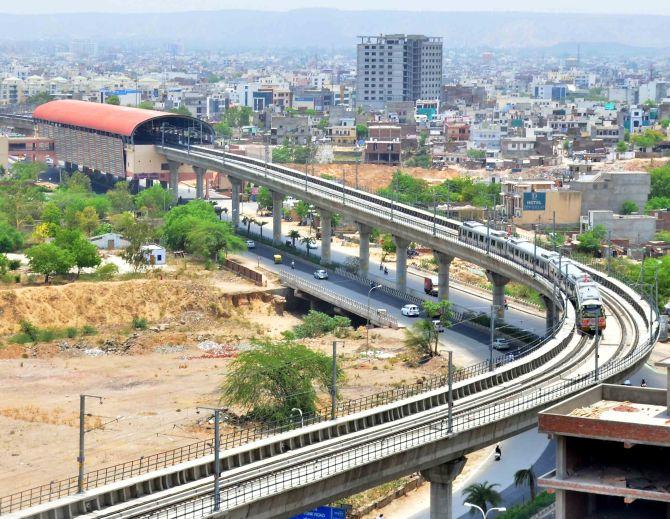The most efficient utility for our smart cities will be about smart design, writes Sunita Narain.
 Smart cities will work only if we can reinvent the very idea of urban growth.
Smart cities will work only if we can reinvent the very idea of urban growth.
Smart thinking will require the government to not only copy the model cities of the already developed Western world, but also to find a new measure of livability that will work for Indian situation, where the cost of growth is unaffordable for most.
But this will not happen unless we can find the right fit for service providers in our cities.
We need services - everything from water to the management and clean-up of sewage to public transport - so that we can live healthy lives.
The question is who will provide these services? What is the nature of the public service utility that India needs?
We know that our current municipal service providers are hampered by lack of technical capacity and crippled with poor governance. In the past few years there has been a push towards privatisation as the solution.
But this is not as easy an answer as it would seem. This is because we have a large population of poor and relatively poor people in our cities, and so public infrastructure has to be affordable to build and to run.
In most cases, the private player is unable to run the public asset - be it water supply, public transport or a swanky airport - without substantial recurring funds.
So the private sector's interest is to make profit by building the infrastructure and then stay clear of the responsibility of providing services.
Take garbage. We know that our cities are drowning in garbage - plastic is surely the curse of the modern landscape.
The current approach is to invest in collecting this garbage, transporting it and burying it in landfills - or to set up refuse-derived-fuel (RDF) plants with the promise of turning everything bad to good.
It is built on the premise that there will either be land for urban India to bury its waste or that waste disposal will pay for itself.
It then assumes that if we can finance infrastructure, we will be able to pay for urban services that can efficiently collect and dispose our waste. The vision is to hire corporate sweepers to clean our cities.
But the facts are different. Firstly, we do not have land to dispose of the waste we currently generate, let alone the additional waste we will generate in the future.
Finding a dumpyard - elsewhere - is always the cheapest and laziest option rich cities in many parts of the world have used.
But we cannot. Secondly, city plans do not account for the fact that there will be increasing quantities of plastic, non-disposable and toxic waste in our households, which will require new and much more expensive ways of disposal.
In fact, even as urban renewal gets under way, we are creating industries of waste generation in the country - from more and more plastic bottles to everything else that is modern and fancy and waste-foolish.
Thirdly, the waste-plan does not understand that it is the rich in the cities that do not pay for their waste disposal. Not the poor.
Urban services today are stretched because they are in the service of the people who generate the waste but do not pay for it. In this scenario, cities cannot under any circumstances extend these services to all.
The question, then, what is the kind of contract that is signed between the private entity - interested in profits - and the public entity incapable of raising profits?
The municipality or local government will either see the private sector as the instrument to recover money from subsidised consumers, or simply see it as a way to provide some efficiency even as the government continues to subsidise its consumers and also pay the private sector its pound of flesh.
Given all this, we need a different definition of efficiency and certainly a different model of service providers in our cities.
The first principle is that whereas the private sector cannot solve the water, garbage or transport problems of our world, it cannot be excluded in playing a role in providing these services.
So, the private contractor can only work within the terms society sets for it. It cannot own the resource. It certainly cannot be its custodian. The private sector may also be asked to set the price and recover dues.
But setting the tariff must be fully transparent - whether about the full costs of treating and delivering water and waste, or providing other services.
In other words, the decision of governments to subsidise its middle-class electorate must not be hidden behind socialist rhetoric.
It is clear that once the rich and middle class of our cities begin to pay some measure of the real price of the service, this dependence on the private sector will also magically disappear.
The public utility sector could become more, or at least equally, efficient as the private company as its returns on equity - profits - can be fully reinvested in the system.
The most efficient utility for our smart cities will be about smart design. Let us not lose sight of this. Not even for an instant.
The writer is at the Centre for Science and Environment.










 © 2025
© 2025